第2章 CHAPTER I(2)
I should not even have known that my father had taken a second wife but for some friend (or enemy)--I never discovered the person--who sent me a newspaper containing an announcement of the marriage.
When we saw each other for the first time, my stepmother and I met necessarily as strangers. We were elaborately polite, and we each made a meritorious effort to appear at our ease. On her side, she found herself confronted by a young man, the new master of the house, who looked more like a foreigner than an Englishman--who, when he was congratulated (in view of the approaching season) on the admirable preservation of his partridges and pheasants, betrayed an utter want of interest in the subject; and who showed no sense of shame in acknowledging that his principal amusements were derived from reading books, and collecting insects. How I must have disappointed Mrs. Roylake! and how considerately she hid from me the effect that I had produced!
Turning next to my own impressions, I discovered in my newly-found relative, a little light-eyed, light-haired, elegant woman; trim, and bright, and smiling; dressed to perfection, clever to her fingers' ends, skilled in making herself agreeable--and yet, in spite of these undeniable fascinations, perfectly incomprehensible to me. After my experience of foreign society, I was incapable of understanding the extraordinary importance which my stepmother seemed to attach to rank and riches, entirely for their own sakes. When she described my unknown neighbors, from one end of the county to the other, she took it for granted that I must be interested in them on account of their titles and their fortunes. She held me up to my own face, as a kind of idol to myself, without producing any better reason than might be found in my inheritance of an income of sixteen thousand pounds. And when I expressed (in excusing myself for not accompanying her, uninvited, to the dinner-party) a perfectly rational doubt whether I might prove to be a welcome guest, Mrs. Roylake held up her delicate little hands in unutterable astonishment. "My dear Gerard, in your position!" She appeared to think that this settled the question. I submitted in silence;the truth is, I was beginning already to despair of my prospects. Kind as my stepmother was, and agreeable as she was, what chance could I see of establishing any true sympathy between us? And, if my neighbors resembled her in their ways of thinking, what hope could I feel of finding new friends in England to replace the friends in Germany whom I had lost? Astranger among my own country people, with the every-day habits and every-day pleasures of my youthful life left behind me--without plans or hopes to interest me in looking at the future--it is surely not wonderful that my spirits had sunk to their lowest ebb, and that I even failed to appreciate with sufficient gratitude the fortunate accident of my birth.
Perhaps the journey to England had fatigued me, or perhaps the controlling influences of the dark and silent night proved irresistible.
This only is certain: my solitary meditations under the tree ended in sleep.
I was awakened by a light falling on my face.
The moon had risen. In the outward part of the wood, beyond which I had not advanced, the pure and welcome light penetrated easily through the scattered trees. I got up and looked about me. A path into the wood now showed itself, broader and better kept than any path that I could remember in the days of my boyhood. The moon showed it to me plainly, and my curiosity was aroused.
Following the new track, I found that it led to a little glade which I at once recognized. The place was changed in one respect only. A neglected water-spring had been cleared of brambles and stones, and had been provided with a drinking cup, a rustic seat, and a Latin motto on a marble slab. The spring at once reminded me of a greater body of water--a river, at some little distance farther on, which ran between the trees on one side, and the desolate open country on the other. Ascending from the glade, I found myself in one of the narrow woodland paths, familiar to me in the by-gone time.
Unless my memory was at fault, this was the way which led to an old water-mill on the river-bank. The image of the great turning wheel, which half-frightened half-fascinated me when I was a child, now presented itself to my memory for the first time after an interval of many years.
In my present frame of mind, the old scene appealed to me with the irresistible influence of an old friend. I said to myself: "Shall I walk on, and try if I can find the river and the mill again?" This perfectly trifling question to decide presented to me, nevertheless, fantastic difficulties so absurd that they might have been difficulties encountered in a dream. To my own astonishment, I hesitated--walked back again along the path by which I had advanced--reconsidered my decision, without knowing why--and turning in the opposite direction, set my face towards the river once more. I wonder how my life would have ended, if I had gone the other way?